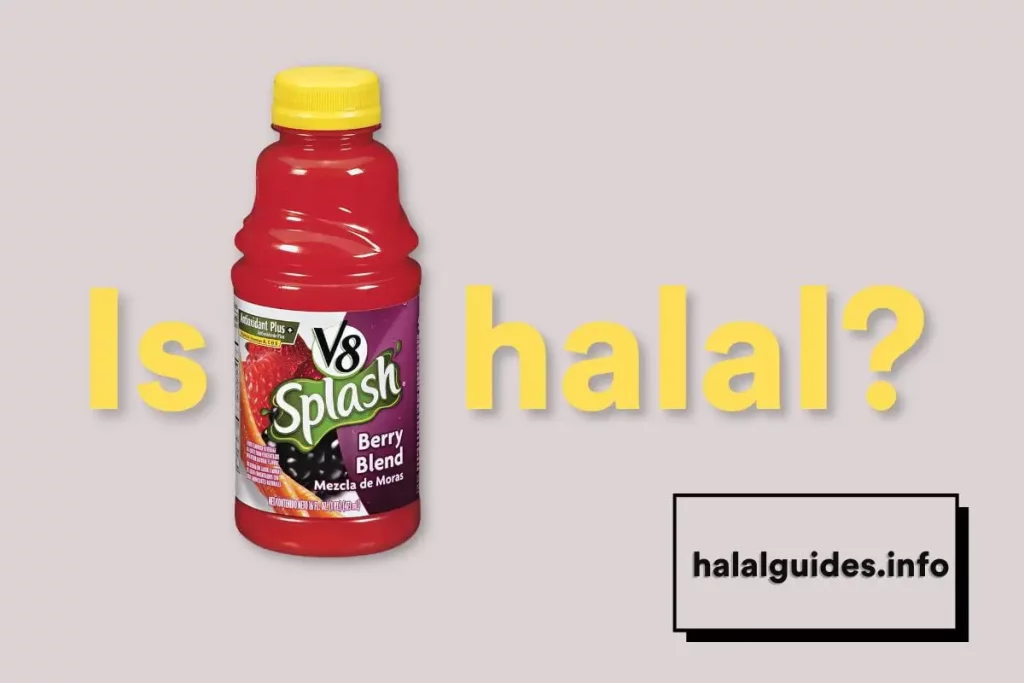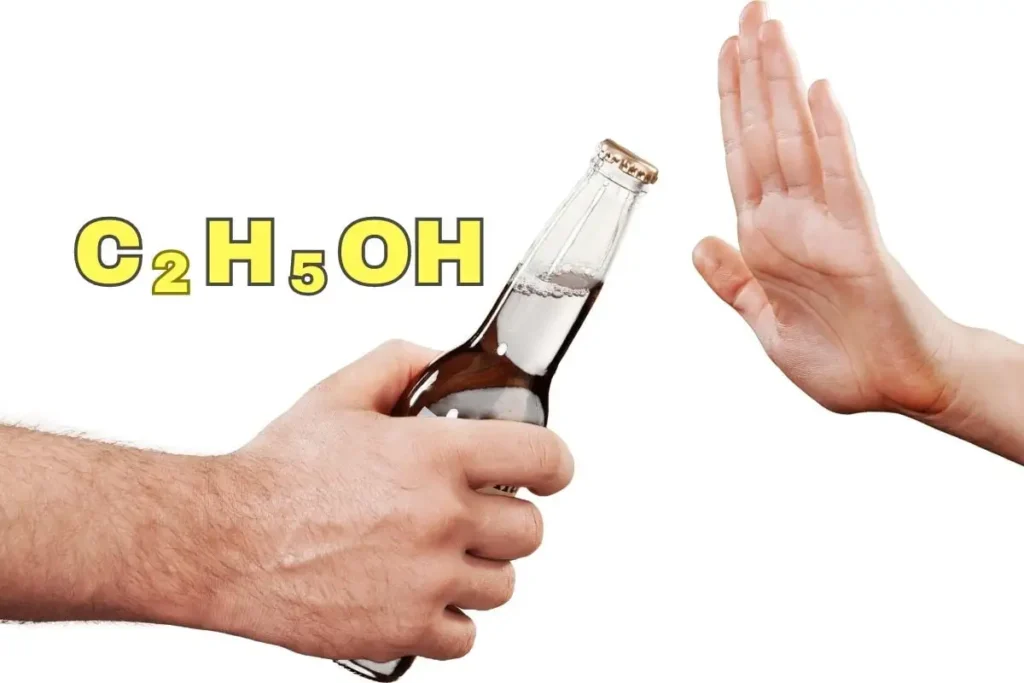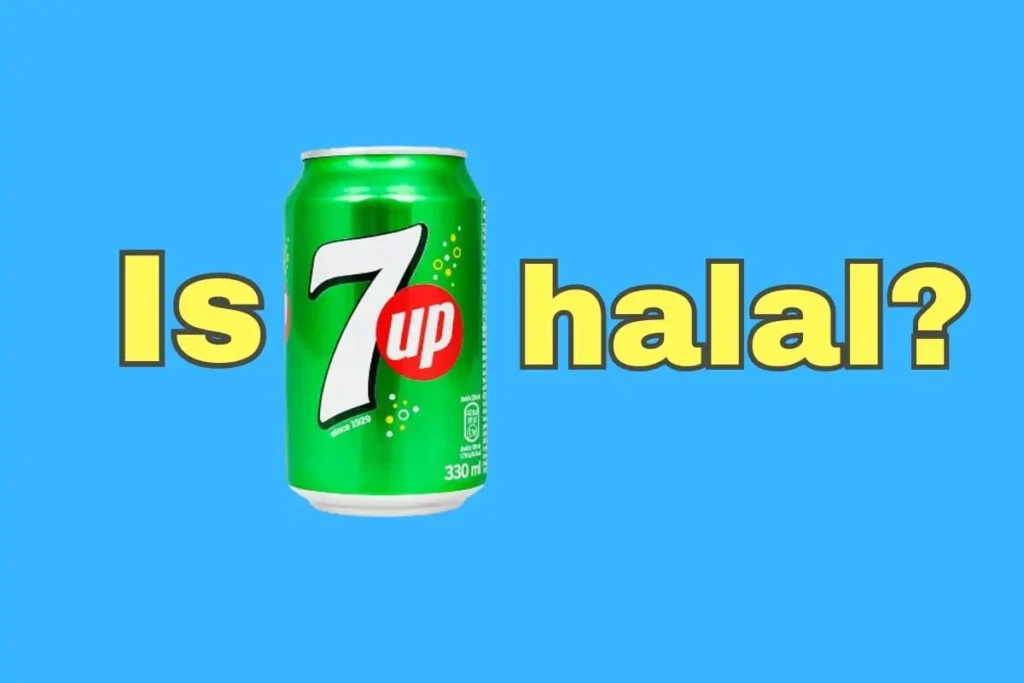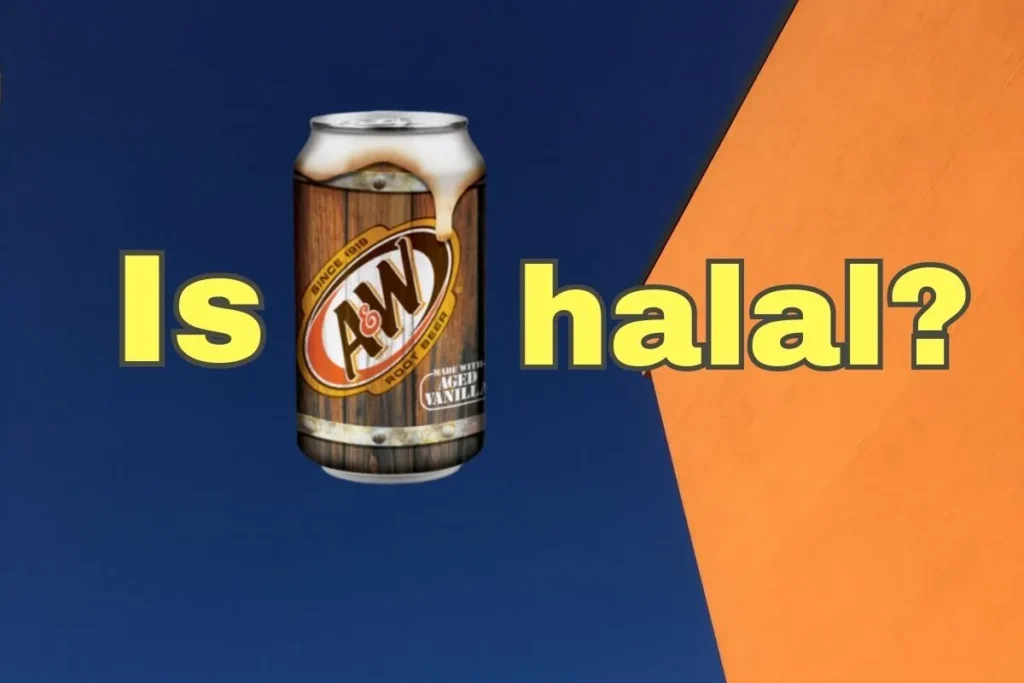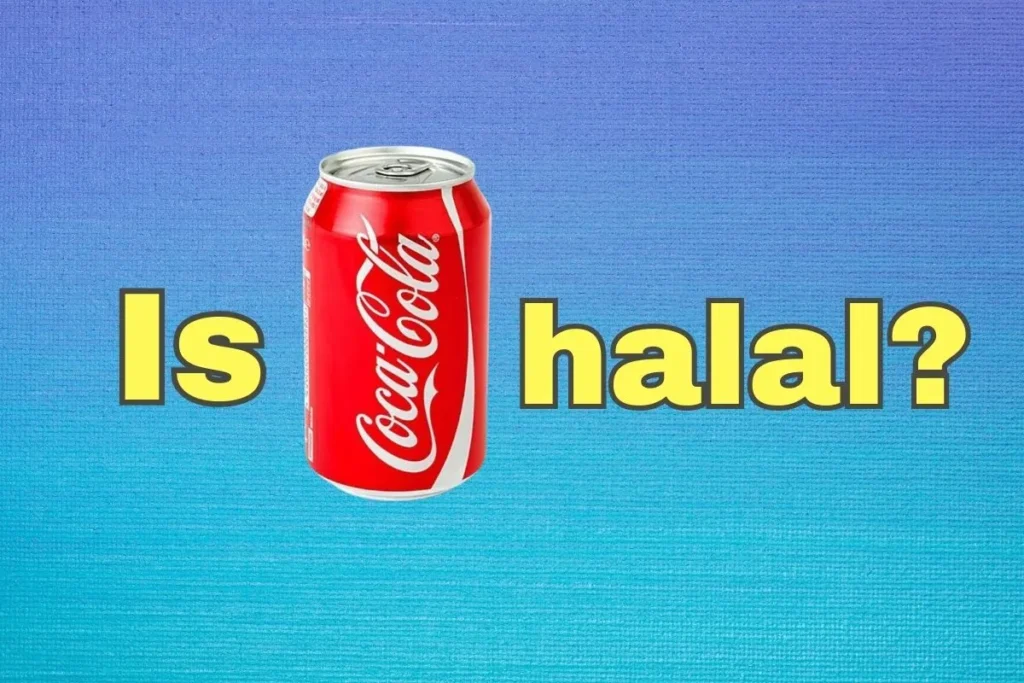In the quest for a healthy and halal lifestyle, the question often arises, “Is V8 Splash Halal?” We at Halalguides.info strive to provide you with all the necessary information to make an informed choice.
Like many, you might be wondering about the other beverages in the market. For example, Is V8 Juice Halal? or Is Vita Coco Halal? The answer to these questions lies in understanding the Halal guidelines, which we will delve into in this article.
Key Takeaways
| 📌 V8 Splash is generally considered halal and safe for consumption, as its ingredients align with halal principles. |
| 📌 Halal guidelines in Islam stipulate that food and drinks are presumed permissible unless explicitly declared as forbidden. Water is typically considered halal, but additives or flavors can affect its status. |
| 📌 While V8 Splash is considered vegan-friendly, with no animal-based ingredients, its high sugar content and potential use of artificial sweeteners should be considered in the context of a balanced diet. |
About V8 Splash
V8 Splash is a juice cocktail that is a spin-off of the V8 brand. It is made from a blend of fruit and vegetable juices, specifically carrot juice, and is partially sweetened with high-fructose corn syrup and sucralose. Diet versions of V8 Splash omit the high-fructose corn syrup. V8 Splash comes in a variety of flavors, including Berry Blend and Tropical Blend. It is also gluten-free.
Some key points about V8 Splash:
- It is a juice cocktail made from a blend of fruit and vegetable juices.
- It is partially sweetened with high-fructose corn syrup and sucralose.
- Diet versions of V8 Splash omit the high-fructose corn syrup.
- It comes in a variety of flavors, including Berry Blend and Tropical Blend.
- It is gluten-free.
Understanding Halal Guidelines
Before we delve deeper into our central topic, it’s crucial to understand what constitutes a Halal product. As per the principles outlined in the Quran, the Islamic holy scripture, ‘Halal‘ (in the context of food) refers to any food or drink that is deemed permissible to consume.
In contrast, the term ‘Haram‘ denotes items classified as “forbidden” in the Arabic language and are therefore not permissible under Islamic law.
Furthermore, there’s a category known as ‘Syubhat‘, which corresponds to a state of uncertainty or ambiguity. These are products whose permissibility status is unclear, and therefore, it is generally recommended for Muslims to avoid these, due to the doubtful nature of their compliance with Halal standards.
The key principle in Islam underscores that all items are presumed permissible unless explicitly deemed as forbidden by Allah or His Prophet. This guideline also applies to various types of drinks or water. Although water is generally regarded as Halal, certain aspects may affect its status.
One of these significant factors is the origin of the water. If water is obtained from a pure, natural source without any contamination from Haram substances, it is classified as Halal. On the other hand, if the water contains Haram additives, such as particular ingredients or flavors, its Halal status could be questioned.
The procedure to designate food as Haram, or forbidden, in Islam, is an inclusive assessment. It considers the presence of harmful substances, directives from Allah and His Prophet, and the prohibition of intoxicants and significant amounts of alcohol.
Now, let’s interpret this verse:
وَأَنفِقُواْ فِي سَبِيلِ ٱللَّهِ وَلَا تُلۡقُواْ بِأَيۡدِيكُمۡ إِلَى ٱلتَّهۡلُكَةِ وَأَحۡسِنُوٓاْۚ إِنَّ ٱللَّهَ يُحِبُّ ٱلۡمُحۡسِنِينَ
“And spend of your substance in the cause of Allah, and make not your own hands contribute to (your) destruction; but do good; for Allah loves those who do good.
The Quran, as a vital guide, provides a comprehensive list of prohibited foods, along with dietary regulations, as mentioned in this particular verse:
حُرِّمَتْ عَلَيْكُمُ الْمَيْتَةُ وَالدَّمُ وَلَحْمُ الْخِنْزِيرِ وَمَا أُهِلَّ لِغَيْرِ اللَّهِ بِهِ وَالْمُنْخَنِقَةُ وَالْمَوْقُوذَةُ وَالْمُتَرَدِّيَةُ وَالنَّطِيحَةُ وَمَا أَكَلَ السَّبُعُ إِلَّا مَا ذَكَّيْتُمْ
“It is forbidden for you (to eat) carrion, blood, pork (an what) slaughtered in the name of other than Allah, those who are suffocated, those who are beaten, those who fall, those that are gored and are eaten by wild animals, except those that you could slaughter”
Islamic law strictly regulates the consumption of intoxicants and high-alcohol content substances based on Fatwa, including alcohol, heroin, amphetamines, LSD, and marijuana.
When evaluating products like V8 Splash, it’s crucial to carefully assess ingredients for compliance with Islamic dietary rules. This detailed examination is key to understanding their potential health impacts.
V8 Splash Ingredients
The ingredients of V8 Splash vary depending on the flavor, but here are some common ingredients found in V8 Splash:
- Water
- High Fructose Corn Syrup
- Vegetable Juice (Water And Concentrated Juice Of Carrots)
- Malic Acid
- Fruit Juice (Water And Concentrated Juices Of Apples, Pineapples, Kiwis, Limes)
- Natural Flavoring
- Vitamin C (Ascorbic Acid)
- Mango Puree
- Sucralose
- Niacinamide (Vitamin B3)
- Pyridoxine Hydrochloride (Vitamin B6)
- Cyanocobalamin (Vitamin B12)
High Fructose Corn Syrup
High-fructose corn syrup (HFCS) is a sweetener made from corn starch. It is commonly used in processed foods and beverages as a cheaper alternative to sugar. However, there has been some debate about its safety and potential health effects.
Here are some key points to consider about the safety of high-fructose corn syrup:
- Diets high in HFCS have been linked to various health concerns, including fatty liver, high triglycerides, insulin resistance, high blood sugar, and an increased risk of type 2 diabetes. Excessive consumption of HFCS-sweetened soda has also been associated with the formation of advanced glycation end products (AGEs) in the intestines.
- HFCS is often compared to granulated sugar. While it has a higher fructose content, the relative sweetness of HFCS used in soft drinks is comparable to that of sucrose. However, it’s important to note that excessive consumption of any added sugars, including HFCS and sugar, can have negative health effects.
- HFCS has certain manufacturing advantages over sugar, such as being easier to handle and cheaper. These factors have contributed to its widespread use in the food industry.
- Like any sweetener, it is important to consume HFCS in moderation. Diets high in added sugars, including HFCS, can contribute to weight gain, obesity, and other health problems. It is recommended to limit overall sugar intake and focus on a balanced diet that includes whole foods.
It’s worth noting that the safety and health effects of HFCS are still a topic of ongoing research and debate. It is always a good idea to consult with a healthcare professional or registered dietitian for personalized advice on sugar consumption and maintaining a healthy diet.
In summary, while HFCS is a common sweetener used in many processed foods and beverages, diets high in HFCS have been associated with various health concerns. It is important to consume HFCS and other added sugars in moderation and focus on a balanced diet that includes whole foods.
Sucralose
Sucralose is an artificial sweetener that is commonly used as a sugar substitute. It contains zero calories because the body cannot break it down. This makes it a suitable option for individuals who are watching their calorie intake or managing conditions like diabetes.
Sucralose is about 600 times sweeter than sugar, so only small amounts are needed to achieve the desired level of sweetness. This makes it a popular choice for those looking to reduce their sugar intake while still enjoying sweet flavors.
Sucralose has been approved as safe for consumption by the U.S. Food and Drug Administration (FDA). It has undergone extensive review and evaluation of over 100 different studies before its approval in 1998.
While the FDA considers sucralose safe, some studies have raised questions about its long-term effects. However, the overall evidence on its safety and health effects is conflicting, and more research is needed to draw definitive conclusions.
It’s important to note that individual responses to artificial sweeteners can vary. Some people may experience digestive issues or other side effects when consuming sucralose, while others may tolerate it well.
In summary, sucralose is an artificial sweetener that is considered safe for consumption by regulatory authorities like the FDA. It provides intense sweetness without adding calories, making it a popular sugar substitute.
However, the long-term effects of sucralose are still a topic of ongoing research and debate. As with any food or ingredient, it’s important to consume sucralose in moderation and listen to your body’s response.
Is V8 Splash Halal?
V8 Splash is considered halal and safe for consumption. The ingredients in V8 Splash are widely used in food and beverages. While we strive to provide accurate information, we always recommend checking the product labels or reaching out to the manufacturer for the most accurate and up-to-date information.
Find out more: Is V8 Juice Halal?
Allahu A’lam (Allah knows best)
FAQ
Is V8 Splash an Israeli product?
V8 Splash is not an Israeli product. It is a juice cocktail produced and distributed by the Campbell Soup Company in collaboration with SodaStream, a company based in Israel. While V8 Splash is available in Israel, it is not an Israeli product.
Is V8 Splash healthy?
The question of whether V8 Splash is healthy is a bit complicated, as it depends on various factors such as the specific flavor, serving size, and individual dietary needs. Here are some key points to consider based on the search results:
Reasons why V8 Splash may not be considered healthy:
- High sugar content: V8 Splash contains a significant amount of sugar, with 25g of total sugar per serving (8 fl oz) in some flavors. Much of this sugar comes from high fructose corn syrup, which is considered a less healthy sweetener.
- Artificial sweeteners: Some V8 Splash flavors also contain sucralose, an artificial sweetener that has been associated with potential health concerns.
- Additives: Some V8 Splash flavors contain added artificial food dyes and other additives of questionable nutritional value.
Reasons why V8 Splash may be considered healthy:
- Vegetable and fruit juice: V8 Splash is made from a blend of fruit and vegetable juices, which can provide some nutrients and antioxidants.
- No added sugar: Some V8 Splash flavors do not contain added sugar, which can be a healthier option for those looking to reduce their sugar intake.
- Convenience: V8 Splash can be a convenient way to consume some nutrients and vegetables when fresh produce is not available or practical.
In summary, whether V8 Splash is healthy or not depends on various factors. While it contains some nutrients and vegetable juice, it also has a high sugar content and may contain artificial sweeteners and additives. It’s important to consider the specific flavor and serving size, as well as individual dietary needs and preferences.
Is V8 Splash vegan?
Based on the search results, V8 Splash can be considered vegan-friendly. Here’s why:
- Natural flavors: The flavorings used in V8 Splash are derived from natural spices, making them vegan-friendly.
- No dairy or eggs: V8 Splash Smoothie, a variation of V8 Splash, does not contain any dairy products or eggs, making it suitable for vegans.
- No animal-based ingredients: V8 Splash does not contain any animal-based ingredients, making it a vegan product.
It’s important to note that while V8 Splash is vegan-friendly in terms of its ingredients, the overall healthiness of the product is a separate consideration. V8 Splash has a high sugar content and may contain artificial sweeteners. Therefore, it’s recommended to consume V8 Splash in moderation as part of a balanced diet.
Does V8 Splash have caffeine?
V8 Splash does not contain caffeine.
- Is Pop Tarts Halal? What You Need to Know - February 18, 2024
- Are Graham Crackers Halal in Islam? - January 19, 2024
- Is Keebler Wheatables Halal? - January 18, 2024

